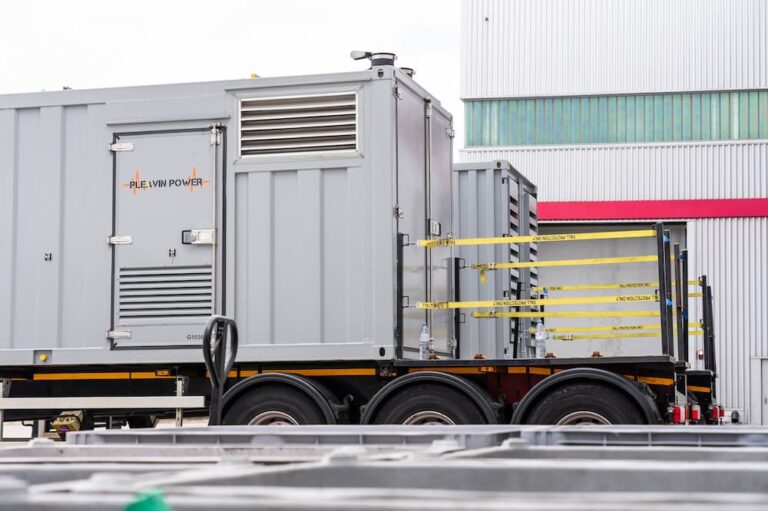In a world where electricity powers almost every aspect of our lives, disruptions in the grid can be inconvenient at best and potentially disastrous at worst.
Portable generators have emerged as a reliable solution to bridge the gap during power outages, outdoor events, or remote locations where a stable power source is unavailable.
But how do these compact machines work, and what sets them apart from other types of generators? Throughout this blog post, we are going to be discussing these questions and will aim to provide you with a comprehensive guide on the main details.
Understanding the Basics
Portable generators create power in much the same way that any other generator does. The basic components of a portable generator include an engine, an alternator, a fuel system, and a control panel.
At the base of every portable generator is an internal combustion engine. The engine’s primary function is to convert the chemical energy stored in the fuel into mechanical energy through combustion.
Most portable generators use gasoline as fuel, although some models may run on petrol or diesel. Gas generators and petrol generators of this size are fairly common to come across when searching for a unit. Portable petrol generators are some of the most popular units on the market. However, if you are struggling with what size generator you should opt for, our team can help!
The alternator, also known as a generator head, is responsible for converting the mechanical energy produced by the engine into electrical energy. This is achieved through electromagnetic induction.
As the engine drives the alternator, it causes a rotor – a rotating magnetic field – to spin within a stationary set of coils, known as the stator. The movement of the magnetic field induces an electrical current in the coils, creating the generator’s output voltage.
Portable generators are designed to be versatile and easy to use, so they typically feature a straightforward fuel system. The engine draws fuel from a tank attached to the generator, ensuring a continuous supply during operation.
The fuel system includes components such as a carburettor, fuel pump, and fuel filter to regulate the fuel-air mixture and maintain engine efficiency.
The control panel is the user interface of the portable generator, providing a range of functions to manage and monitor the unit. It includes outlets for connecting electrical devices, circuit breakers to protect against overloads, and various indicators for fuel level, oil pressure, and output voltage.
The Operation Sequence
Understanding how portable generators work involves grasping the sequential process that takes place when the generator is started and begins to produce electricity.
The user starts the generator by engaging the engine, usually through a pull cord or an electric starter. The engine’s combustion process begins as fuel mixes with air in the carburettor, creating a highly flammable mixture.
The combustion process produces high-pressure gases that force the engine’s pistons to move. This mechanical energy is transferred to the crankshaft, creating rotational motion.
The rotating crankshaft is connected to the alternator’s rotor, initiating the generation of a magnetic field. As the rotor spins within the stator’s coils, electricity is generated through electromagnetic induction.
The control panel allows users to regulate the generator’s output, ensuring a stable voltage suitable for powering various devices. Circuit breakers protect against overloads, shutting down the generator if necessary.
The generated electricity is then routed through the generator’s outlets, allowing users to connect appliances, tools, or other devices. The generator continues to operate as long as there is fuel in the tank.
Advantages of Portable Generators
As the name suggests, portability is a key feature of these generators. Compact and lightweight, they can be easily transported to different locations, providing portable power where it’s needed most without the need for complex installations.
Portable generators can accommodate a variety of fuel types, providing flexibility in choosing the most convenient and available option. This versatility makes them suitable for a wide range of applications, from camping trips to emergency backup power.
Designed with user-friendliness in mind, portable generators often feature simple controls and quick-start mechanisms. This makes them accessible to a broad audience, including those without extensive technical knowledge.
Portable generators are ideal for short-term power needs. Whether you’re camping in the wilderness, hosting an outdoor event, or experiencing a temporary power outage, these generators offer a reliable and immediate solution.
Common Challenges and Safety Considerations
While portable generators are invaluable in many situations, it’s essential to be aware of potential challenges and safety precautions.
Portable generators produce carbon monoxide, a colourless and odourless gas that can be deadly if inhaled in high concentrations. To prevent carbon monoxide poisoning, generators should never be operated indoors or in enclosed spaces.
Storing fuel for portable generators requires careful consideration. Users must follow manufacturer guidelines for fuel types and storage conditions to ensure optimal performance and safety.
Overloading a generator can lead to equipment damage and pose a fire hazard. Users should be mindful of the power requirements of connected devices and avoid exceeding the generator’s rated capacity.
Routine maintenance is crucial for ensuring the long-term reliability of portable generators. This includes oil changes, air filter replacements, and periodic inspections of components such as spark plugs and fuel lines.
If you require any maintenance services, the team at Pleavin Power are available throughout the day to assist you in whatever way we can.
Portable Generators With Pleavin Power
Portable generators play a vital role in providing on-the-go power solutions for various scenarios. Understanding the mechanics behind these devices, from fuel combustion to electricity generation, empowers users to make informed decisions and operate them safely.
As technology continues to advance, portable generators are likely to become even more efficient, eco-friendly, and user-friendly. Whether you’re planning a camping trip, preparing for a natural disaster, or simply need a reliable power source in a remote location, the humble portable generator stands ready to deliver the electricity you need, when you need it.
At Pleavin Power, we have a wide range of generators for hire and sale which include more than just portable units. If you are in need of any help when making your decision, our team can also be by your side while making your decision.
Our service also extends to fundamental generator repairs to make sure that your generator remains functional for as long as possible. Please feel free to get in touch with us at 0151 832 5007 if you need any more info!

Jack is the owner of Pleavin Power which was founded in 2017. He has worked in the power industry for over a decade and has an extreme focus on providing a quality service to clients across the UK. This has led Pleavin Power to becoming the market leader in the Critical, Prime & Standby Power markets.








